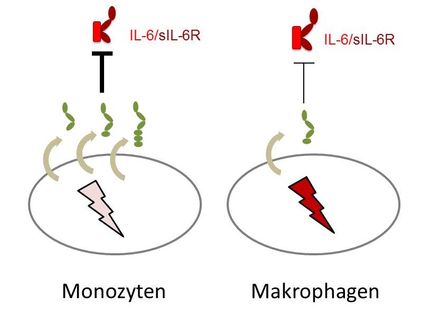Galapagos successfully completes first Phase I study for GLPG0259
Pharmacokinetic profile supports once-daily oral dosing
Galapagos NV announced the successful completion its first-in-human trial of the novel candidate drug GLPG0259 for rheumatoid arthritis (RA). The candidate drug showed good safety in healthy volunteers and an excellent pharmacokinetic (PK) profile thus far, which supports once-daily oral dosing. GLPG0259 is a novel mechanism-of-action inhibitor of the protein kinase MAPKAPK5, which was discovered through Galapagos' target discovery platform and represents a new approach for the treatment of RA.
The goal of the first-in-human trial was to determine the safety, tolerability, and pharmacokinetics of the candidate drug GLPG0259. The double blind, single ascending and multiple dose study was conducted in 34 healthy volunteers in Belgium from March to May 2009. The compound was administered up to five consecutive days and showed good safety, with no cardiovascular side effects. The desired PK profile obtained thus far supports once-daily oral dosing.
Target MAPKAPK5 is a new starting point for the treatment of RA. Galapagos discovered and validated the key role of this target in the RA disease process, using its proprietary target discovery technology. MAPKAPK5 had not been previously associated with RA; however, Galapagos showed that it plays a key role in inflammation and in the breakdown of collagen in human cartilage. The candidate drug GLPG0259 inhibits MAPKAPK5 in the human cell, and demonstrated excellent bone protection and reduced inflammation in a standard RA animal model.
GLPG0259 is a compound in Galapagos' internal RA program, which is part of an option agreement with Janssen Pharmaceutica. Upon the completion of a dose finding Phase II clinical trial for GLPG0259, Janssen has the exclusive option to license the program for €60 million, with further potential milestones to Galapagos of €776 million and double-digit royalties on global sales.
Topics
Organizations
Other news from the department research and development

Get the life science industry in your inbox
By submitting this form you agree that LUMITOS AG will send you the newsletter(s) selected above by email. Your data will not be passed on to third parties. Your data will be stored and processed in accordance with our data protection regulations. LUMITOS may contact you by email for the purpose of advertising or market and opinion surveys. You can revoke your consent at any time without giving reasons to LUMITOS AG, Ernst-Augustin-Str. 2, 12489 Berlin, Germany or by e-mail at revoke@lumitos.com with effect for the future. In addition, each email contains a link to unsubscribe from the corresponding newsletter.
Most read news
More news from our other portals
Last viewed contents
Psychedelics,_dissociatives_and_deliriants
Cerebral_venous_sinus_thrombosis
Oomycete

Unnoticed lesions in the brain slow down thinking - High blood pressure is the strongest risk factor for changes in the cerebral vasculature
Hemidesmus indicus
Environmental chemical blocks cell function - Researchers from the University of Bonn have discovered adverse effects of Bisphenol A on calcium channels
Pan_American_Health_Organization
Muscle_fiber





















































